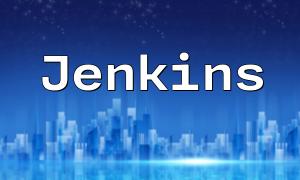Jenkins is a widely used continuous integration and continuous delivery (CI/CD) tool that helps development teams automate various stages of the software lifecycle. When combined with PHP projects, Jenkins can dramatically improve development efficiency and code quality, making workflows more reliable and maintainable.
In modern PHP development, automation in testing, integration, and deployment has become essential for maintaining high-quality projects. By integrating these tasks into Jenkins, developers can reduce manual work and accelerate delivery.
Jenkins offers several features to help developers enhance PHP code quality:
// PHPUnit test case
require_once "vendor/autoload.php";
use PHPUnit\Framework\TestCase;
class MyTest extends TestCase
{
public function testAdd()
{
$a = 1;
$b = 2;
$result = add($a, $b);
$this->assertEquals(3, $result);
}
}
The example above demonstrates a simple PHPUnit test case. When integrated into Jenkins, such tests can be automatically executed after each code commit, helping maintain system stability.
Beyond improving code quality, Jenkins also provides numerous tools to enhance collaboration and overall productivity:
// Capistrano deployment script
require "capistrano/lib/capistrano/tasks"
set :application, "my_app"
set :deploy_to, "/var/www/my_app"
set :scm, :git
set :repo_url, "git@GitHub.com:user/my_app.git"
namespace :deploy do
task :update_code do
on roles(:app), in: :sequence, wait: 5 do
execute :git, "clone #{repo_url} #{current_path}"
end
end
task :install do
on roles(:app), in: :parallel do
within current_path do
execute :composer, "install --no-dev"
end
end
end
task :deploy do
update_code
install
restart
end
end
This example shows how to automate PHP project deployment using Capistrano. When combined with Jenkins, the deployment process can be triggered automatically after each commit or merge, saving time and minimizing human error.
Integrating Jenkins with PHP projects is a powerful way to enhance both code quality and productivity. By automating testing, building, and deployment, teams can streamline their workflows and deliver stable, high-quality applications faster. Whether you are a beginner or an experienced PHP developer, Jenkins is an essential tool for achieving continuous integration and delivery.










